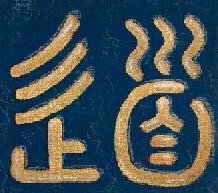What Is Taoism and How Can We Understand Tao?

Introduction
Tao, the root word of Taoism, simply means “the way.” The ancient symbol for Tao depicts a man walking along a path. It is truly one of the most unique bodies of knowledge and its contributions, though of great significance even today, are relatively unknown by modern people.
Many believe that the Tao Te Ching, which is perhaps the most important text in Taoism, was written by a man named Lao Tzu. If you look deeper into the meaning of “Lao Tzu,” however, you will see that, when translated literally, it means “old man.” So the origins of Taoism remain shrouded in mystery even today.
Its seems as if nobody really knows where it came from. I’m inclined to believe that Taoism is a collection of ancient metaphysical principles bundled together in order to preserve what remains. In other words, Taoism was not seen as a distinct body of knowledge in the past, instead there were many spiritual, healing and metaphysical practices that were widely done, but were later combined into one body of knowledge. This was probably done in order to distinguish the ancient ways from different practices which were later adopted.
Beyond all speculation, it is clear that the aim of those who study Taoism is to understand “the way” things really are. They do this despite all tradition and precedent. In ancient times, when Taoism flourished in China, students of Tao were known to drop their lives and venture into the mountains where they hoped to enrich their understanding of Tao.
With this novel approach, the Taoists collected a vast body of medical knowledge including a study of herbs, foods and their effect on the human body and spirit. This knowledge was eventually consolidated into the first known medical school by the Yellow Emperor. Chinese medicine then blossomed into the marvel that the west is only beginning to understand.
Approaches to Understanding Tao
Surely there are countless ways to understand Tao. Unlike most of the spiritual practices of today, most Taoists are careful not to become enthralled in rituals as a means of understanding Tao. Compassion is seen as an absolute necessity in understanding the way of things, the Taoists see ritual as “the death of compassion.”
This is an excerpt from the Tao Te Ching in which the author explains ritual:
Well established hierarchies are not easily uprooted;
Closely held beliefs are not easily released;
So ritual enthralls generation after generation.Harmony does not care for harmony, and so is naturally attained;
But ritual is intent upon harmony, and so can not attain it.Harmony neither acts nor reasons;
Love acts, but without reason;
Justice acts to serve reason;
But ritual acts to enforce reason.When the Way is lost, there remains harmony;
When harmony is lost, there remains love;
When love is lost, there remains justice;
And when justice is lost, there remains ritual.Ritual is the end of compassion and honesty,
The beginning of confusion;
Belief is a colorful hope or fear,
The beginning of folly.The sage goes by harmony, not by hope;
He dwells in the fruit, not the flower;
He accepts substance, and ignores abstraction.
One method that has helped me to gain a better understanding of Tao is the practice of Tai Chi, which is a Taoist practice that teaches the practitioner how to harness the Chi (vital essence) that flows through their meridians (channels through which bio-morphic energy flows). When a practitioner gains control over their Chi, they are able to improve many aspects of their life including health, awareness and martial skill.
After a long Tai Chi session, a practitioner receives a tremendous workout without the soreness and tiredness often characteristic of most physical exercises. Indeed people have practiced Tai Chi for 50 or more years of their life and even after all of that time, they still remark, “Its marvels are inexhaustible!”
Another method of understanding Tao, which has worked well for me, is to read a good translation of the Tao Te Ching. I find that the translation by Roger T. Ames titled Dao De Jing: A Philosophical Translation. It is a more direct translation from excavated material that is far older than that which is utilized by most of the other translations.
Whatever a practitioner chooses to do, if they will just use intuition as their guide and abolish ritual, surely they will learn something novel of Tao, something that is sure to surprise them and bring them to planes of existence that they had not previously contrived.

i missed you 🙂 i loved that excerpt. alot.
Great posts on the Dao de Jing. The philosophy of the Dao has shaped much of the world (and I love to argue that it has influenced the West in ways scholars refuse to consider). It was fun to stumble onto your site today. Thank you!
Hello it’s me, I am also visiting this web page on a regular basis, this web page is
genuinely good and the visitors are really
sharing nice thoughts.
Veryy nice write-up. I definitely appreciate this site.
Thanks!